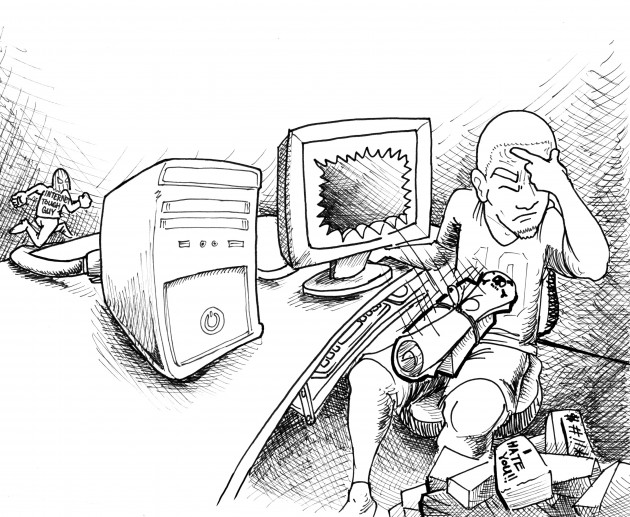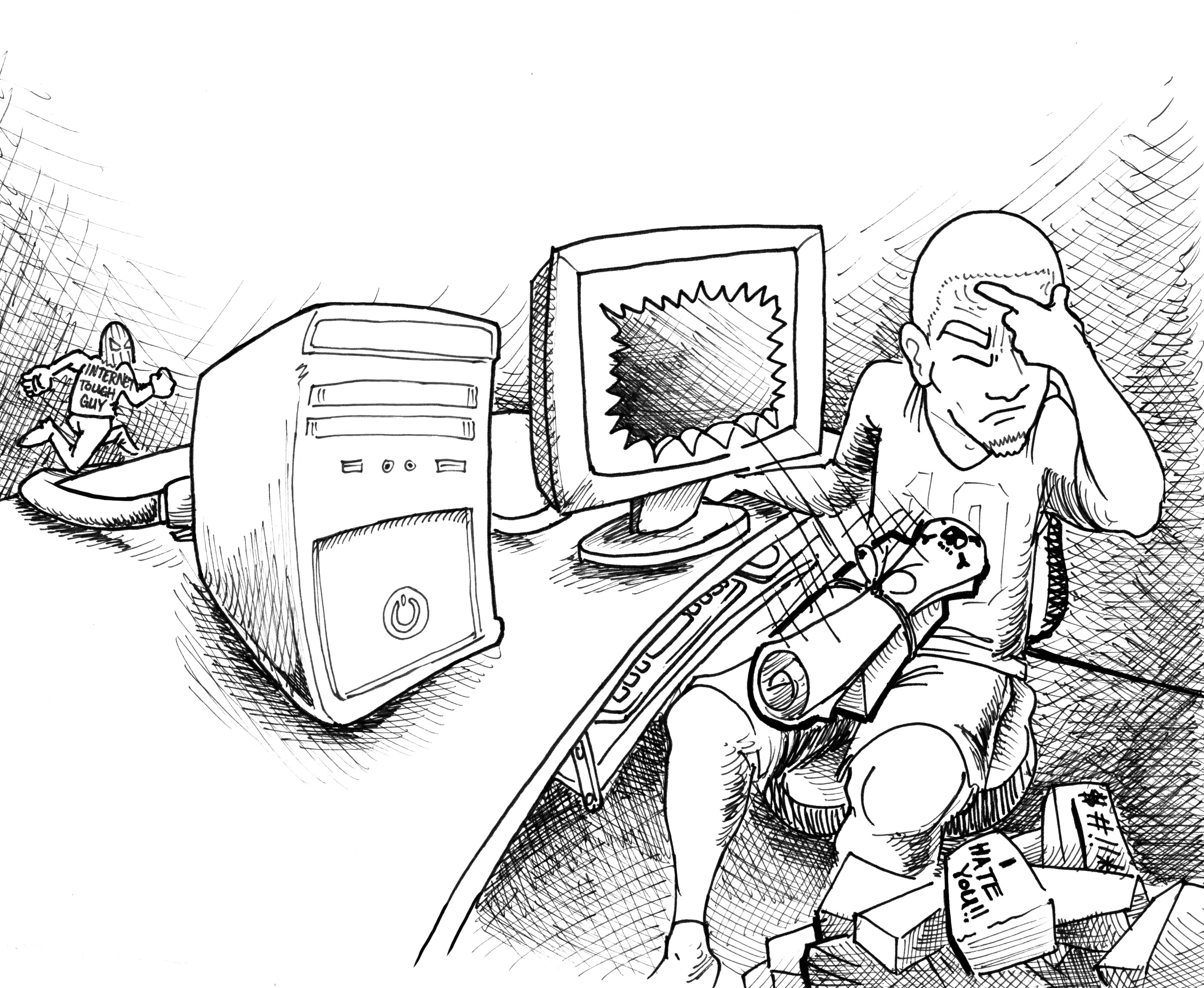
One of the great things about sports is its ability to draw on fans’ emotions to an extent some people will never understand. People cheer when their team does well. Some people cry or yell at their television when their team does poorly. Sports can be our escape.
Unfortunately, some fans take their emotional investment too far sometimes.
On Jan. 22, the New York Giants defeated the San Francisco 49ers in the NFC Championship 20-17 in overtime. Blame for the loss was largely placed on rookie wide receiver Kyle Williams, who fumbled two punts, including one in overtime that set up the Giants with a game-winning field goal.
After the game, Williams reportedly received plenty of hate from fans, some to the point of wishing he would die, some actually threatening to do so.
Really, people? As fans, we have the right to yell and boo when we’re upset at our team. After all, we’re the ones that pay money for tickets, jerseys and other team items.
Threatening a player’s life, however, vastly crosses that line. Sports is not that important. These games can mean a lot to us, but they are still just games.
Williams did not rob anybody’s house. He did not take anyone’s life savings or pension. He did not hurt or offend anyone. He dropped a ball a couple times; that’s it. No one has the right to threaten the man’s life because of that.
Death threats in sports are nothing new, but with the rise of technology and social media, they have, unfortunately, become easier to express.
Facebook and Twitter have given us the ability, as fans, to contact our favorite athletes at an unprecedented level prior to the advent of social media. Fans can now tell their favorite athletes how much they enjoy rooting for them and how many different jerseys they have of that player.
Some fans have also used it to criticize players, sometimes in crude or violent fashion. This is the brunt of what Williams took after the game.
Facebook, Twitter and other similar sites should monitor this kind of behavior and prevent it from happening by suspending people’s accounts and thereby blocking their threats.
At some point, though, fans have to take responsibility for their actions. They have to know where to draw the line between sports and life.
Out of this terrible ordeal, there are three people who deserve some praise. Owen Shure is a 7-year-old 49ers fan, and a big fan of Kyle Williams. After the game, his dad said Owen was “inconsolable.” Owen wrote a letter to Williams telling him how big of a fan Owen is and how much he supports him.
Of the 49ers’ fans out there, a 7-year-old is the voice of reason and encouragement?
Ken Williams, general manager of the White Sox and Kyle’s father, said he was hurting for his son, but also that he could not be more proud of the way his son reacted after the game.
Finally, there is Kyle Williams himself. After the game, he stood up and answered all the media’s questions. He did not lash out or blame anyone else. He showed maturity and courage. That’s something some of his so-called fans cannot attest to.
Threatening someone’s life behind a computer screen and an account name does not make you tough. It makes you cowardly.






